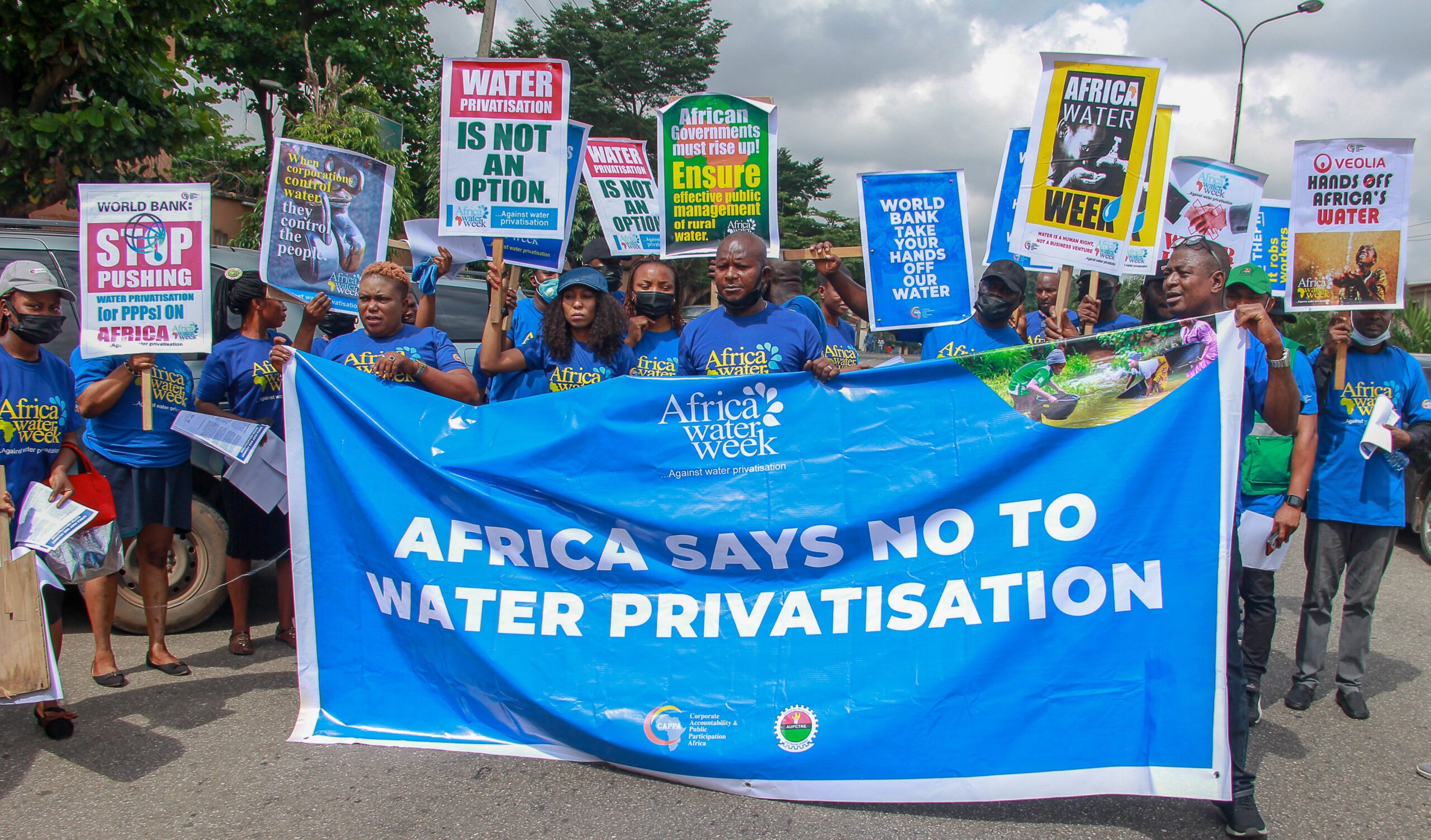Civil Society Organizations under the umbrella of Our Water Our Right Africa Coalition (OWORAC) have described all attempts by African governments to privatize water as false solution.
The group tasked governments and public representatives to break ties with companies that are seeking to make profits out of water and to put water under democratic systems and institutions, stressing that, “well-funded and publicly accountable public water systems are the best way to ensure the availability, accessibility, and affordability of safe water service.”
In a statement released to mark the World Water Day 2022, the coalition said their position stands to counter false ‘solutions’ espoused by the corporate-backed World Water Forum (WWF) which is holding in Dakar, the Senegalese capital, where multinational Suez’s large-scale water privatisation scheme is failing communities and workers.
“OWORAC and other activists participating in the Alternative World Water Forum 2022 recognize that the struggle for water is an intersectional, internationalist struggle that needs a solid anti-capitalist, people-centered and feminist orientation.
“They are also calling on governments and public representatives to stop using the neoliberal full cost-recovery model for water services and to break ties with companies seeking to make profits out of water and to put water under democratic systems and institutions,” the statement reads in part.
In 2021 the OWORAC exposed private water multinationals like Veolia and Suez’s aggressive push, backed up by international financial institutions and enabling governments, to take over Africa’s water systems with the sole purpose of profiteering without recourse to water as a human right.
Africa Must Rise and Resist Water Privatisation, a publication by the coalition released during the Africa Week of Action Against Water Privatisation which held October 10-15, 2021, insist that privatisation of the water sector including those backed by the World Bank, continue to threaten lives, livelihoods, food security, culture, health, education, and the integrity of natural environments in Africa.
“Privatisation will make it impossible for the continent to meet the Strategic Development Goal 6 which advocates for availability and sustainable management of water and sanitation for all by year 2030,” the group noted.
OWORAC identified various examples of failed water privatisations projects on the continent and throughout the world, pointing out that the parading of privatisation of water as a solution to the problem of water availability problem in Africa poses grave dangers to universal access. An example of these failures is in Cameroon, where the government pulled out of a failed privatisation arrangement.
“Unfortunately, the same government is now considering embarking on another doomed privatisation arrangement under the guise of lack of public financing for the water utility company.
“In Gabon, a World Bank-backed privatisation was marred by consistent failures, including poor service and even a typhoid outbreak in the capital city. When the government ended this privatisation arrangement with multinational Veolia, the corporation took it to international arbitration, with the state ultimately paying tens of millions of Euros in a settlement. Now, the government is exploring re-privatisation of the sector.
“After ending a long-term urban water privatisation scheme that did not meet the expectations of the population, in 2021 the Mozambique cabinet approved a wide-sweeping privatisation scheme that would cover 19 large urban areas of that country. Mozambican civil society organizations are deeply opposed to the corporate capture of the water sector.”

